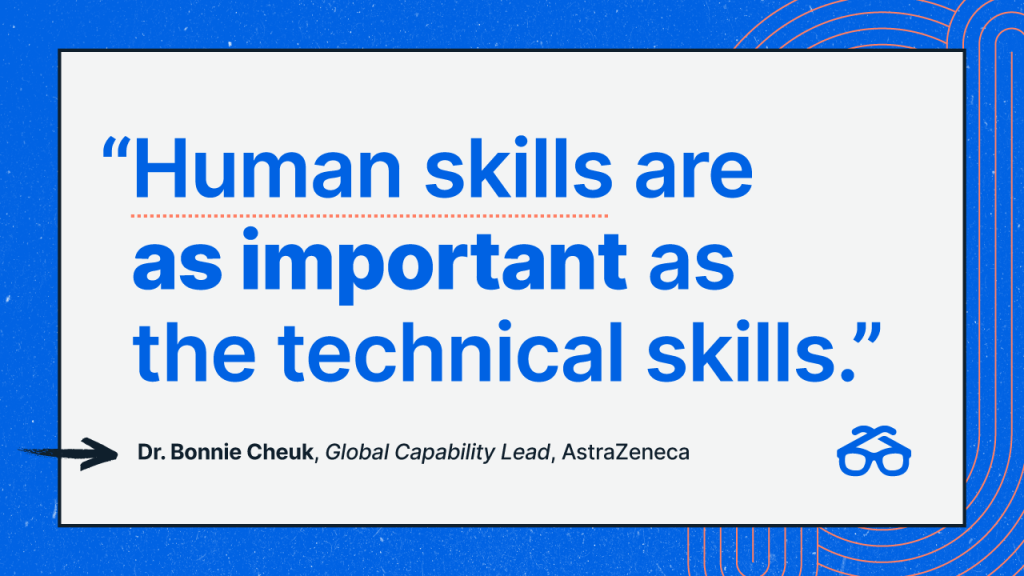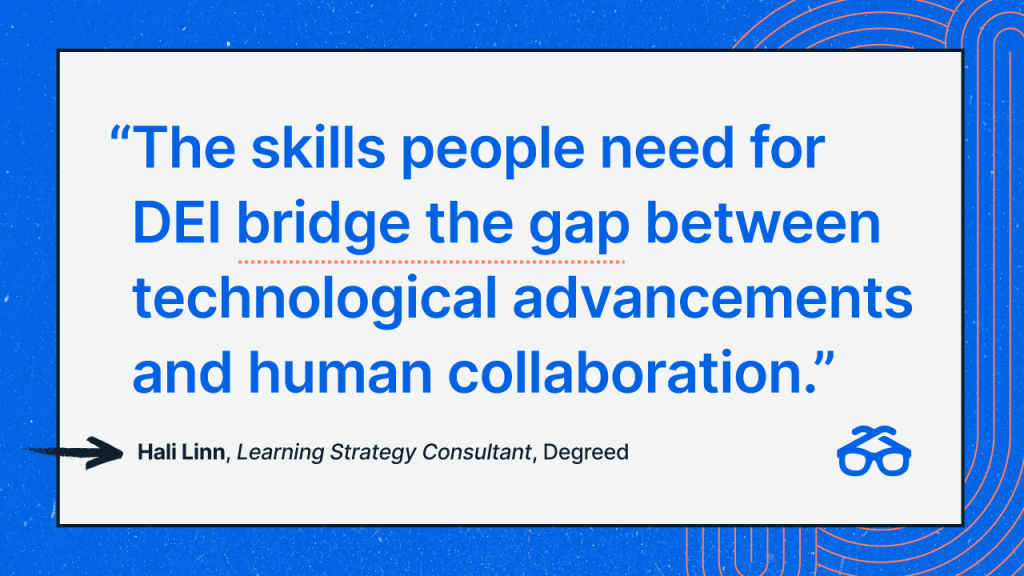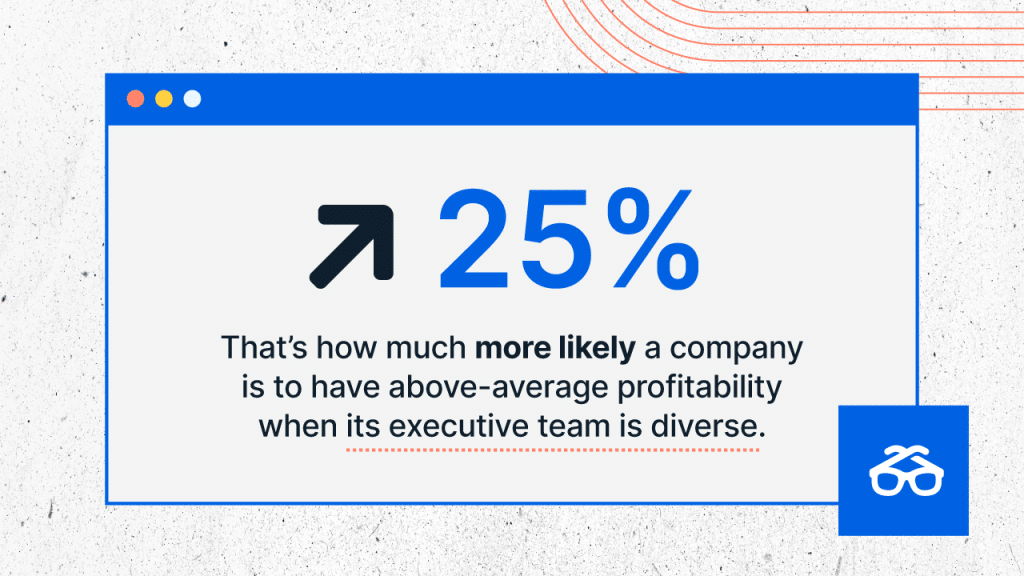This is the first post in a series on building skills for Diversity, Equity, & Inclusion (DEI). See the second.
As organizations look ahead and strive to stay competitive, many are hyper-focused on artificial intelligence, automation, and the skills needed to drive new technologies. These are all critical pursuits.
But as business leaders seek innovation, they may be overlooking one critical factor: Developing skills for DEI. For many companies, leaving DEI off the to-do list could wind up being a catastrophic miss.
Who hasn’t missed? Consider AstraZeneca, where leaders successfully prioritized Generative AI upskilling at scale and found that “human skills are as important as the technical skills.” As AstraZeneca quickly recognized, without human skills even the most technically advanced organizations struggle to reach targets. Why? Technologies can’t reach their full potential without the support of crucial human skills.

Skills required for DEI—like critical thinking, creative problem-solving, and cross-cultural agility—are ultimately all about people, the very same people who drive your business and meet its goals.
What are the skills needed for DEI?
Skills are measurable, developable capabilities, and they provide a clear and objective way to track employee growth and performance over time. In doing so, they can serve as a consistent framework for evaluating progress, identifying gaps, and aligning individual development with organizational goals.
Applying this concept to DEI, skills become the measurable capabilities that enable employees to foster inclusive and equitable environments and to drive positive DEI outcomes. By measuring DEI skills, organizations can ensure accountability and sustained DEI impact.
A growing shift to skills-based learning and development is redefining how companies approach employee development. In doing so, this shift is reshaping how that development connects to work.
DEI programs have historically been challenging to measure. In a skills-first framework, DEI initiatives can be evaluated not only by participation and engagement, but also by the development and application of inclusive skills across a workforce, from inclusive leadership to cultural awareness and allyship.

The skills people need for DEI bridge the gap between technological advancements and human collaboration. The financial firm Skandinaviska Enskilda Banken boosted performance by creating training that emphasized psychological safety, which in turn enhanced knowledge sharing. The result? Revenues 25% above targets in a key market segment.
By framing DEI as a measurable set of skills, organizations can better gauge the success of their initiatives and align these efforts with overall business goals, creating a culture that is inclusive in principle and demonstrably so in practice. We’ll delve more deeply into what DEI skills you might prioritize for your organization in an upcoming Part No. 2 of this series.
The Value of DEI
As companies work to identify the skills that will drive their future success, DEI programming seems to be slipping further down the priority list, with the extreme cases making headlines. This comes as DEI skills have never been more important. While technical advancements promise to boost efficiency, it’s the human skills—like critical thinking, cultural awareness, and collaboration—that allow employees to effectively leverage tech tools.
Data shows that companies that prioritize diversity and inclusion outperform their competitors. A study by McKinsey found that organizations in the top quartile for gender diversity on executive teams were 25% more likely to have above-average profitability. Ignoring these skills means missing out on opportunities to enhance cash flow, stakeholder value, and overall financial resilience.
Meeting the Moment: Why DEI Skills Matter More Than Ever
Amid economic pressures, workforce burnout, and unprecedented rates of change, employees are expected to do more with less. But without a supportive and inclusive culture, engagement and productivity suffer. DEI skills foster environments where all employees can feel valued, included, and able to bring their best ideas forward—ideas that are often the key to driving innovation and hitting ambitious business goals.

The Conscious Culture initiative at Cisco Systems emphasizes building inclusive teams, offers unconscious bias training, and develops internal resource groups that drive leadership accountability. Another example comes from Allianz, where DEI is considered to be “core to business and purpose,” The company embraces the positive impact “on employee engagement, customer loyalty, and stakeholder trust.”
Addressing Potential Resistance
Some business leaders might argue that during times of economic uncertainty, prioritizing DEI skills is a luxury, not a necessity. However, failing to invest in these skills can lead to disengaged employees, higher turnover, and a lack of innovative ideas—all of which ultimately hurt the bottom line. In fact, companies with diverse and inclusive cultures are more resilient during downturns, as they are better able to adapt and innovate.
What’s next?
As you set goals for the coming year, don’t overlook the power of DEI skills. These aren’t just soft skills—they’re strategic assets that drive company performance, innovation, and employee satisfaction. By integrating DEI skill development into your company’s goals, you’re setting the stage for a more adaptable, innovative, and competitive organization.
Neglecting DEI skills in your goal-setting process isn’t just a missed opportunity—it’s a critical misstep that could hold your organization back from reaching its full potential.
Degreed Professional Services
Hali Linn is a Learning Strategy Consultant on the Degreed Professional Services team.
Degreed Professional Services partners with business leaders and learning pros to explore learning strategies, technology goals, and questions. Book a free and private consultation.

